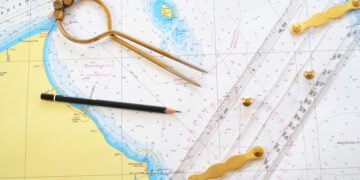Ronald Paul, COO of the Port of Rotterdam Authority commented on the ban of using the Nitrogen Approach Program, when granting permits, that it will affect potential customers and will have negative impacts on the agriculture, business climate in Port of Rotterdam and also on the development of the energy transition.
Specifically, the Nitrogen Approach Program (PAS) consists of regulations concerning activities that enhance nitrogen deposition, that are only allowed to be conducted, only if they meet the conditions in the PAS.
According to the PAS, anticipating future positive consequences of measures for protected nature areas, permission is already given for activities that may be harmful to those areas. Also, the PAS provides room for developments, as the construction of infrastructure or improvement of livestock farming.
[smlsubform prepend=”GET THE SAFETY4SEA IN YOUR INBOX!” showname=false emailtxt=”” emailholder=”Enter your email address” showsubmit=true submittxt=”Submit” jsthanks=false thankyou=”Thank you for subscribing to our mailing list”]
On the contrary, the regulation also tries to provide for measures that try to reduce negative consequences for nature.
In addition, the banning of using the Nitrogen Approach Program (PAS) will affect agriculture, but is also damaging to the business climate in the port of Rotterdam and the progress of the energy transition.
As Mr Paul noted
There must be an alternative quickly that also represents the interests of Dutch ports and industry.
The conversations around PAS began when the Council of State, announced the previous week, that the PAS will no longer be used as a basis for permission for activities.





































































